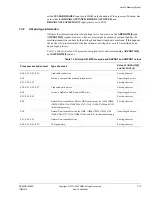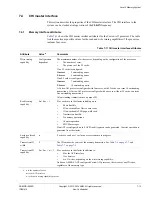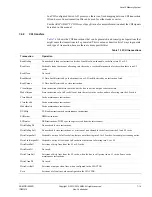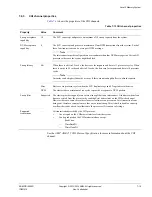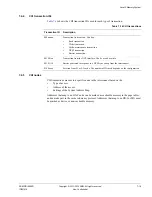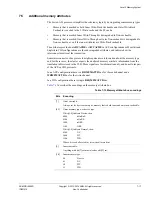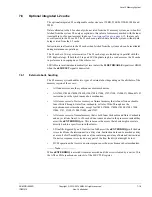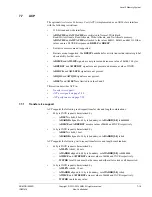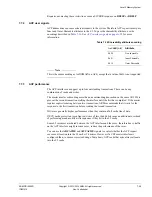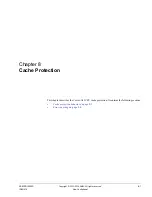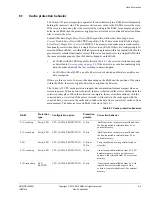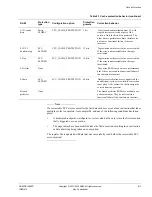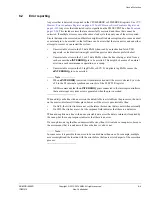
Level 2 Memory System
ARM DDI 0500D
Copyright © 2013-2014 ARM. All rights reserved.
7-10
ID021414
Non-Confidential
7.3.3
Snoop channel properties
Table 7-9
shows the properties of the ACE channels.
See the
ARM
®
AMBA
®
AXI and ACE Protocol Specification AXI3, AXI4, and AXI4-Lite, ACE
and ACE-Lite
for more information about the ACE channel.
WriteBack
Evictions of dirty lines from the L1 or L2 cache, or streaming writes that are not allocating into the cache.
WriteClean
Evictions of dirty lines from the L2 cache, when the line is still present in an L1 cache. Some cache
maintenance instructions.
WriteEvict
Evictions of unique clean lines, when configured in the L2ACTLR.
Evict
Evictions of clean lines, when configured in the L2ACTLR.
Table 7-8 ACE transactions (continued)
Transaction
Operation
Table 7-9 ACE channel properties
Property
Value
Comment
Snoop acceptance
capability
8
The SCU can accept and process a maximum of eight snoop requests from the system. It counts
requests from the request being accepted on the AC channel to the response being accepted on the
CR channel.
Snoop latency
Hit
When there is a hit in L2 cache, the best case for response and data is 13 processor cycles. When
there is a miss in L2 cache and a hit in L1 cache, the best case for response and data is 16 processor
cycles.
Note
Latencies can be higher if hazards occur or if there are not enough buffers to absorb requests.
Miss
Best case six processor cycles when the SCU duplicate tags and L2 tags indicate the miss.
DVM
The cluster takes a minimum of six cycles to provide a response to DVM packets.
Snoop filter
Supported
The cluster provides support for an external snoop filter in an interconnect. It indicates when clean
lines are evicted from the processor by sending Evict transactions on the write channel.
However there are some cases where incorrect software can prevent an Evict transaction from being
sent. Therefore you must ensure that you build any external snoop filter to handle a capacity
overflow that sends a back-invalidation to the processor if it runs out of storage.
Examples of cases where evicts are not produced include:
•
Linefills that take external aborts.
•
Store exclusives that fail.
•
Mis-matched aliases.
Supported
transactions
-
All transactions described by the ACE protocols:
•
Are accepted on the master interface from the system.
•
Can be produced on the ACE master interface except:
—
WriteUnique.
—
WriteLineUnique.
—
ReadNotSharedDirty.
—
ReadClean.

















